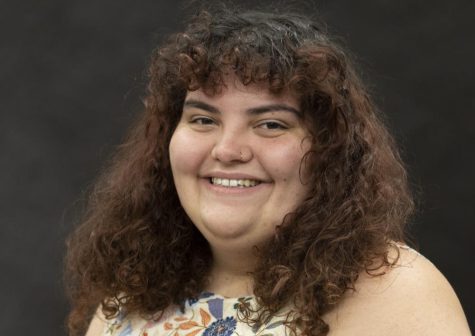Alumnae talk experiences living in China, COVID-19 breakout
March 2, 2020
Two Eastern alumnae shared their stories as educators in China during the COVID-19 outbreak, commonly known as coronavirus, as one lives in China and one is stuck in the U.S., unable to return to her students.
According to the World Health Organization, coronaviruses range from common colds to severe acute respiratory syndrome, COVID-19 being a more severe coronavirus.
Connie Wieck, a 1986 Eastern graduate, was fortunate to have gone back to her home in Marshall, Illinois before COVID-19 came to the city she teaches in: Luzhou in the Sichuan Province.
The Sichuan Province currently has 538 confirmed cases of COVID-19 and three deaths from the virus.
While Wieck is back in the U.S., she is going around the state speaking about the coronavirus and doing public relations for the Chinese NGO that she works with in China, Amity Foundation.
The foundation works with teachers from the U.S. to teach English in China.
Wieck said while the terms with the foundation tend to last two years, she has worked with the group for a longer period of time.
“In my case, it happens to be a long-term, so I am what we call a long-term Amity Foundation teacher,” Wieck said. “I have been in China for probably about 24 years with the Amity Foundation, and I’ve been working in different colleges and schools throughout the country, but this particular placement is in Luzhou, which is in the Sichuan Province, and I am at Luzhou Vocational and Technical College where I have been for about 12 years.”
Victoria Adams, a 2015 Eastern graduate, currently lives in Guangzhou, Guangdong and works as an educator.
The area Adams lives in currently has 1,350 confirmed cases of COVID-19 and seven deaths from the virus.
Adams said the area she is in is still technically as open as it was before the virus, although some changes have happened.
“My city, Guangzhou, is still ‘open’ and hasn’t closed its trains and planes to and from the city yet,” Adams said. “However, they have implemented a strict rule that you must wear your mask in public spaces. I didn’t go out much, but when I had to, I was constantly using hand sanitizer and hand wipes to clean, say, a door handle or a table I’d sit at.”
However, she said the city’s atmosphere has changed.
“The city is constantly noisy and busy. Really any time of day, somebody would be outside. There are a lot of people after all,” Adams said. “When the virus hit, it was Chinese New Year, too, so many people leave the city to visit friends and family, and the virus kept people indoors. It became like a ghost town. It was so weird to be on the metro and be the only one in the queue to board the train; (it) felt very apocalyptic.”
Wieck said as of now, the college she teaches at is closed to students and lessons are being taught online.
She said she is hopeful the school will reopen in the near future, but she believes the college’s administration is doing the right thing.
“This is really a nightmare on the part of our leaders, and they’re very concerned about the safety of the students,” Wieck said. “They would really rather them not be travelling at this time and bringing possible sicknesses and maybe not even the virus, but even the flu, and bringing it to the school and then having the concern of ‘Is that the virus? Is it not the virus?’ Because then they would have to go through all of that as well.”
Adams said the outbreak is being dramatized in some areas.
“My friends and family ask me a lot of questions like, ‘Is it true people are collapsing in the streets?’” Adams said. “No, it is not that serious. I think the U.S. media is infamous for blowing things out of proportion. It’s a serious virus, of course, but more people die every year from the flu than have died from (COVID-19).”
She said that like Wieck, her classroom’s setting has changed.
“The Chinese government is doing its best to keep things working as normally as possible,” Adams said. “I will start teaching my kindergarten class online by sending them videos every day.”
Corryn Brock can be reached at 581-2812 or at cebrock@eiu.edu.




































































